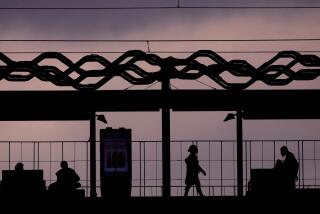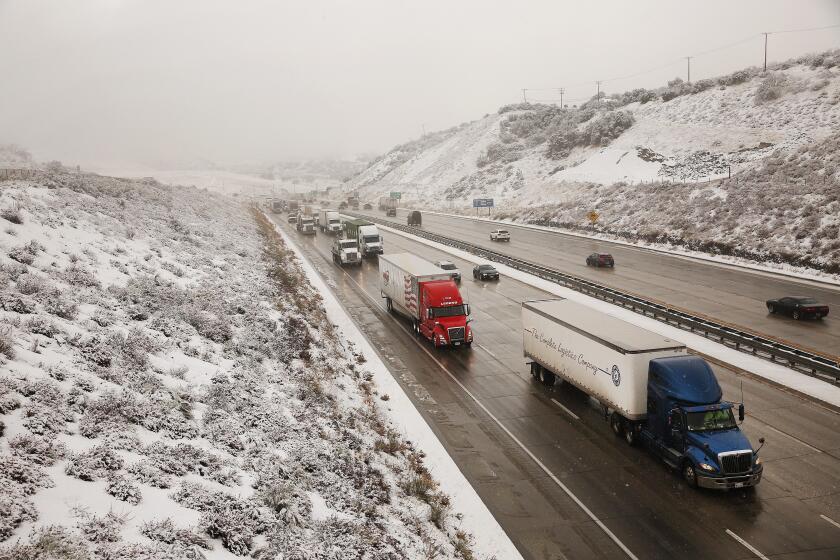Metro fare hikes are the only way
FOR DECADES, Los Angeles County taxpayers have been heavily subsidizing fares for Metro bus and rail riders. The subsidies rose sharply under a federal consent decree — in place since 1996 and ended last October — when a court-appointed special master ordered a massive expansion of bus service and fares were essentially frozen. That has resulted in a $1.8-billion projected operating deficit for the Metropolitan Transportation Authority over the next 10 years.
But the deficit doesn’t exist in a vacuum. It threatens to choke off mobility options for 10 million residents whether they walk, bike, take a bus or train, carpool or drive a car or truck. Everyone, regardless of ethnicity and income and no matter what mode of travel they use, pays the sales taxes that pay for our transportation programs, so we all have a stake in the fare subsidy dilemma.
County taxpayers are not getting what they expected when they voted twice since 1980 for local sales taxes intended to further modernize and expand public transit and improve streets and highways. Last November, voters overwhelmingly approved a nearly $20-billion state bond measure to build highway and public transit projects. Metro’s huge operating deficit is siphoning local funds that could be used to match bond money and other state and federal funds to fast-track critical highways and transit system projects.
This is what drove the Metro staff, which I head, to propose a major fare restructuring. We simply can’t continue business as usual and still provide quality service to our customers. Although the base cash fare is $1.25, the average rider pays only 58 cents a boarding. This is due to deep discounts for the various pass holders. Fares cover just 24% of the cost of a ride; 76% is subsidized by taxpayers. In 1988, taxpayers subsidized 56% of each boarding passenger’s ride.
Metro staff is proposing raising the $1.25 cash fare to $2, beginning in January 2009. Day passes would increase from $3 to $5 in July, and to $8 by 2009; monthly passes would go from $52 to $75 in July, and to $120 by 2009. This is not out of line with other major cities. A daily pass costs $9 in Boston, $8 in Atlanta and $7 in New York City, and many carriers already charge $2 base fares. If the Metro board adopts the proposed fare changes, the average passenger will still pay only 86 cents per ride.
It’s simple economics; our revenues don’t cover our costs, and if we don’t do something now, we’re just postponing the inevitable and making the problem worse for the future.
Metro has diminished its reserves, slashed more than 500 administrative positions in the last five years, reined in workers’ compensation costs and aggressively pursued every avenue to raise more revenue, including blanketing our buses and Metro Rail stations with ads. But it’s still not enough.
We recognize that higher fares will be difficult for our customers. It’s the last thing we want, but we have forestalled acting for far too long. At this point, if we don’t make the fare change, it will be much worse for our patrons because cuts in service will be more painful, leaving many riders stranded.
Despite rising costs for equipment, fuel, labor and other operating expenses, Metro has maintained one of the lowest fare structures in the U.S., even as we undertook the greatest expansion of service in our history. Over the last decade, under the federal consent decree, Metro purchased more than 2,000 clean-air buses and added more than 1 million hours of service.
Metro ridership in 2006 rose almost 6% over the previous year, double the national average. However, we’re faced with the difficult but very real choice between charging higher fares or providing less service. History tells us that our customers are willing to pay more as long as the quality and level of service remains high. The fare change is this agency’s commitment to deliver the service our patrons have come to rely on.
More to Read
Sign up for Essential California
The most important California stories and recommendations in your inbox every morning.
You may occasionally receive promotional content from the Los Angeles Times.










